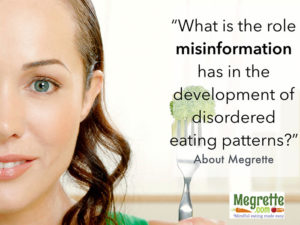 “Why do bad things happen when clients try to lose weight?” is the second most asked question in the world; the first is “What can I do to prevent this?” What you can do to help is to really understand why bad things happen when a person tries to intentionally lose weight. Dieting is a slippery slope for many people. It is not wrong, but it can be a dangerous tool which is why it is helpful to explore how your client feels about dieting.
“Why do bad things happen when clients try to lose weight?” is the second most asked question in the world; the first is “What can I do to prevent this?” What you can do to help is to really understand why bad things happen when a person tries to intentionally lose weight. Dieting is a slippery slope for many people. It is not wrong, but it can be a dangerous tool which is why it is helpful to explore how your client feels about dieting.
Intentional weight loss is 99 percent of the time driven by a compassionate desire. Holding in my heart each and every person I see is trying to care for their body is how I keep myself focused on the client. I must remind myself it is not lack of desire stopping them, but something far more complex. It is easy to jump down the rabbit hole and forget the road to hell is paved with good intentions.
When a person is not present in the here-and-now, they are no longer able to make a choice. When a person is thinking about what life will be like when they are “x” pounds smaller, they are not in their body as it is now. This future focus is like living in a state of suspended animation, because life begins at “x.” Living in either the future or the past is similar to a mental prison, with no hope of parole or escape. It is not surprising that after a week, month, or many years, a person no longer wants to “diet. It is not fun, pleasant, or even helpful so the same compassionate desire to be healthy kicks in and starts to rebel against the call to diet, again, and again and again.
The desire not to diet is a compassionate healthy voice within all of us. I know sometimes it is difficult to see it this way, but deep inside, under the fear, anger, and excuses, I bet you will find this lovely desire. Unfortunately, at the same time there is a growing voice of doubt, failure, and self-criticism whispering, “…if you only tried harder…” This whisper is reinforced by media messages, biased health reporting, and the repeated echo of the Thin Ideal which portrays an idealized life in the thinner body. If you are not familiar with the Overeating SHAME eating cycle you may want to read How Does Misinformation or Biased Health Information Support the Development of Disordered Eating? This healthy voice to not diet conflicts with the unspoken, Thin Ideal. In a counseling session, you may think that your client isn’t motivated to change, when in fact, it is more likely your client wants to end this conflict that is raging within them. This is discussed in Seeing the Larger Problem of Disordered Eating. In the next post, I will continue to explore how mindful eating can help end disordered eating. Sign up for Megrette.com newsletter, “
By Megrette Fletcher M.Ed., RD, CDE
Author of Core Concepts of Mindful Eating: Professional Edition

